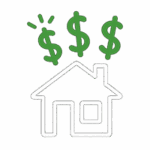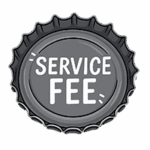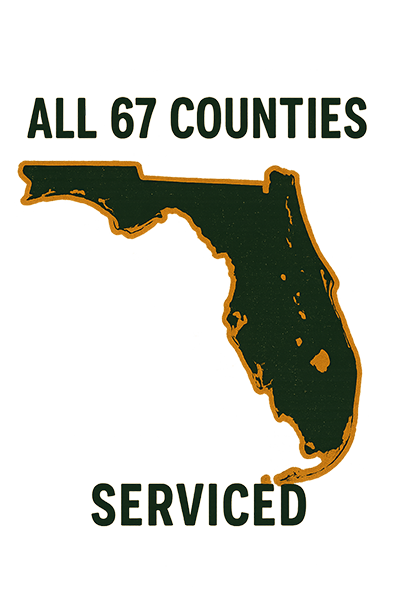Surplus Advocate leads, agents, and contracted attorneys have recovered millions of dollars for foreclosed property owners, and protected against countless instances of theft and exploitation.




With Surplus Advocates’ non-profit recovery agents assisting in the locating, filing, and recovery of your tax deed or foreclosure surplus, collecting the funds you are owed can be as simple as signing our form agreement, and being available by email ot phone to answer any questions that may come up.
Sign an agreement allowing Surplus Advocates to step in as a non-profit recovery service to assist in claiming your surplus funds.
Provide a reliable phone number and email address to reach you with any questions that may occur, and an address to have your check mailed to.
Never Pay More Than 12% And Avoid Flat Fee Contracts
Section 45.033, Florida Statutes implements a fee cap of 12% on voluntary surplus assignments. In the past, the Florida Bar has implied that this also applies to attorneys and sanctioned an attorney who was overcharging his clients.
Some bad actors attempt to avoid the fee cap by charging so-called “Flat Fees” that end up being more than 12%, sometimes by a lot. Don’t sign anything that charges you more than 12%, and be very careful with hiring a for-profit company, or an attorney who shows up out of the blue.
BEWARE OF SURPLUS RECOVERY SCAMS
The best way to avoid being a victim of overcharging or outright theft is to act as soon as possible to recover your surplus, and be vigilant about who you’re trusting.
Millions of dollars in surplus funds are stolen or misappropriated every year by fly-by-night groups that use names with words such as “recovery firm”or “refund group.” These businesses are usually not law firms, despite sometimes holding themselves out as such.
Instead, they are for-profit companies whose primary mission is often to make as much money as possible off of desperate foreclosed owners, which frequently includes charging more than is permitted by law, and sometimes involves outright theft.
Since 2015, dozens of attorneys have been sanctioned, disbarred, and in some cases imprisoned for their roles in surplus recovery scams and theft operations.

![]() RED FLAGS TO LOOK OUT FOR
RED FLAGS TO LOOK OUT FOR ![]()
![]()
![]()

A foreclosure or tax deed surplus exists when the amount a foreclosed property sells for is more than the amount that was owed to the foreclosing creditor.
For example, if you owed a bank $100,000, and they foreclosed, and the property sold for $150,000, there would be a $50,000 surplus ($150,000 – $100,000 = $50,000). Same for a tax deed foreclosure. If the tax deed sold for $50,000, but you only owed $5,000, there would be a $45,000 surplus.

No! You should never pay an upfront fee to anyone in order to receive surplus funds. Fees should always be a percentage of the surplus, paid from the surplus at the same time the county mails a check to you.
Never pay anything out of pocket.
If someone is paying you in advance for the assignment of your surplus, they are almost always exploiting your situation to scam you.
Besides total theft, these are often the saddest cases. In one case, an owner was paid $2,000 for a tax deed surplus assignment by someone who came knocking on their door. It turned out to be worth nearly $100,000! And because that particular state did not have fee caps for tax deed surpluses, the scam artist was allowed to keep the money.
Selling you surplus for a few thousand dollars is almost always a bad idea. If money is needed so badly that you can’t wait 25-30 days, please contact us and we’ll try to work with you.
Legal fee caps vary by state. For example, in Florida, the maximum fee that a surplus recovery company can lawfully charge is 12%.
Sometimes an attorney will say they can charge more than the normal fee caps, up to 33% or even 40%. However, the Florida Bar has issued an opinion stating that attorneys should also be bound by the 12% cap. Additionally, if an attorney calls or appears in person (or has someone else tell you about them) they have likely violated rules of professional conduct, which generally prohibit an attorney from directly soliciting clients.
As a non-profit, Surplus Advocates is always willing to take these cases for 12% or less. We have expense reserves as part of our non-profit mission, so we will cover any court costs exceeding 12% of the surplus. Additonally, we only work with vetted and experienced outside attorneys who will never charge you any additional funds.

Surplus recovery companies are almost never attorneys. This is a huge point of confusion, as many surplus refund and asset recovery scams pretend as if they are a law firm. They generally are not!
Even more importantly, if you assign your surplus to one of these for-profit companies, the lawyer is not YOUR lawyer. They are the for-profit company’s attorney, and they are acting in the best interests of that for-profit company, which is not necessarily your best interests!
In reality, it is very hard for legitimate attorneys to do direct surplus work because professional codes of conduct prohibit lawyers from contacting you directly by phone or in person for the purpose of getting your business. They also cannot ethically pay someone else to do these things. Paid commissions and fee splits are not legally permitted, but lots of bad actors do this.
At Surplus Advocates, we do not refer cases to lawyers in exchange for a “commission” or fee split. Instead, we pay expert lawyers in the areas we service to handle these cases to achieve the best outcome.

No. Surplus Advocates is a non-profit organization with a mission to fight surplus fraud and theft, and to recover surplus funds for foreclosed owners in a manner consistent with relevant state law.
As a non-profit, we never charge anything in advance, and any fees received after a surplus has been paid out goes towards the attorneys fees and costs of your recovery. Any remaining amounts are not paid to anyone as profit, but are used to help other individuals whose surpluses are too small to cover those costs.
So, when you choose Surplus Advocates, you’re not only getting a non-profit who’s looking out for you, you’re also potentially helping someone else in the same boat.
The short answer is that it’s often very hard to tell. Surplus recovery is not as regulated as it probably should be, and it’s historically been an attractive area for scam artists and thieves. Even the “best” for-profit surplus recovery companies frequently manipulate the system to get higher fees than the law provides for by charging “flat fees” instead of a percentage.
Unfortunately, in many cases the recovery company also has an interest or business relationship with the person who purchased your property, and will work to funnel money to the purchaser. In most cases, these attempts are not legitimate or lawful, but they are frequently successful if unopposed. That’s why they want to sign you up. So, no one opposes the purchaser.
It depends on the state. Most states will send the money to Unclaimed Property for at least a few years before it is abandoned to the state. Some states treat the money as abandoned pretty quickly. In Florida, the owner has a year to claim the money before it is turned over to Unclaimed Property. However, due to an apparent oversight, any assignment of the surplus must occur within 60 days after the Clerk of the Court issues its certificate of disbursements.
However, fraud and theft are big threats. The longer the money sits unclaimed, the more attractive it is for a bad actor to try to steal it.
Other so-called “junior” lienholders may have a claim to some of the surplus. This could be a homeowners association or a second mortgage. At Surplus Advocates, we work to figure this out ahead of time to avoid giving any false hope. Some bad actor firms will attempt to “race to the courthouse” to claim the money. The problem with this is that the lienholder may still have a right to the money and may try to come after you.
Bad actors don’t have much incentive to care after the money is paid because they’ve received their fee and, in some cases, have disappeared.
It depends on the jurisdiction and its procedures. On average, it takes Surplus Advocates between 25-45 days to return surplus funds to foreclosed owners.
The most unpredictable part is generally a judge’s schedule and availability for required hearings.
Yes. If you signed an agreement with a for-profit company and believe that you’ve been misled, or cheated, or overcharged, Surplus Advocates is happy to speak with you to review whether you can get out of the agreement. It’s an unfortunate reality that most for-profit companies charge more than they’re lawfully allowed to.
So, it is not uncommon for owners to get out of those unlawful contracts and have Surplus Advocates assist them for far less expense.
Attorneys are prohibited from calling or approaching a potential client to seek their business. Additionally, attorneys cannot pay someone else to do these things for them. They also can’t pay commissions or share fees with non-attorneys.
As a result, if you’re being directly contacted by someone claiming to be an attorney or working for an attorney, they are very likely violating rules of professional conduct which could subject the attorney to professional discipline.
As a non-profit organization, directors are not paid a salary and are only recompensed for ordinary expenses. Administrative staff are paid salaries consistent with their position. As of the last review (August 15, 2025), the highest paid hourly employee was under contract for $25.20 per hour.
We do not pay commissions to employees.
The bulk of the funds we receive for assisting with cases are spent on professional fees and court costs. Because we do not spend money on fundraising, anything remaining after these expenses is used to pay office and utility expenses, to increase awareness, and to provide services for those with smaller surpluses that we may “lose money” assisting.
There were personal motives, but the short answer is that we got tired of seeing this problem of massive surplus theft and exploitation occurring year after year, with state governments not expressing much interest in fixing the problems.
We realize the life altering second chance that these funds can sometimes provide to people. And it’s a shame that too often those second chances are stolen or minimized by bad actors.
In a perfect world, the government would identify the rightful recipient(s) of these funds, and would simply go through the required procedures and send a check. Unfortunately, very few states have done this. We’ve found that many legislators simply don’t understand this issue, or don’t care enough to do anything about it.
So, until they do, we’ll continue to try to help people have a second chance.

Hardee
Hendry
Hernando
Highlands
Hillsborough
Holmes
Indian River
Jackson
Jefferson
Lafayette
Lake
Lee
Leon
Levy
Liberty
Madison
Manatee
Marion
Martin
Miami-Dade
Monroe
Nassau
Okaloosa
Stay in the know about the current state of surplus recovery practices.
Did you know that if your home was sold at a foreclosure auction in Florida, you may still be owed money?
When a property sells for more than the amount of the mortgage judgment, the extra money left over — called a foreclosure surplus — belongs to you, the former homeowner.
And, yes, that does make a difference.
At Surplus Advocates we pride ourselves on being the only nonprofit organization focused exclusively on the recovery of foreclosure and tax deed surpluses.
It means you can trust us to be transparent and honest throughout the surplus recovery process. And also less expensive than for-profit surplus chasers.
Our informational brochure explains foreclosure surplus and recovery procedures, and our mission as a nonprofit surplus recovery organization.
We also provide information on fraudulent and exploitative risks to look out for to make sure you recover as much of the foreclosure surplus as you are entitled to, and discuss steps that can be taken if you’ve been taken advantage of.

© 2025 Surplus Advocates, Inc.
A Delaware Non-Profit Organization
All Rights Reserved